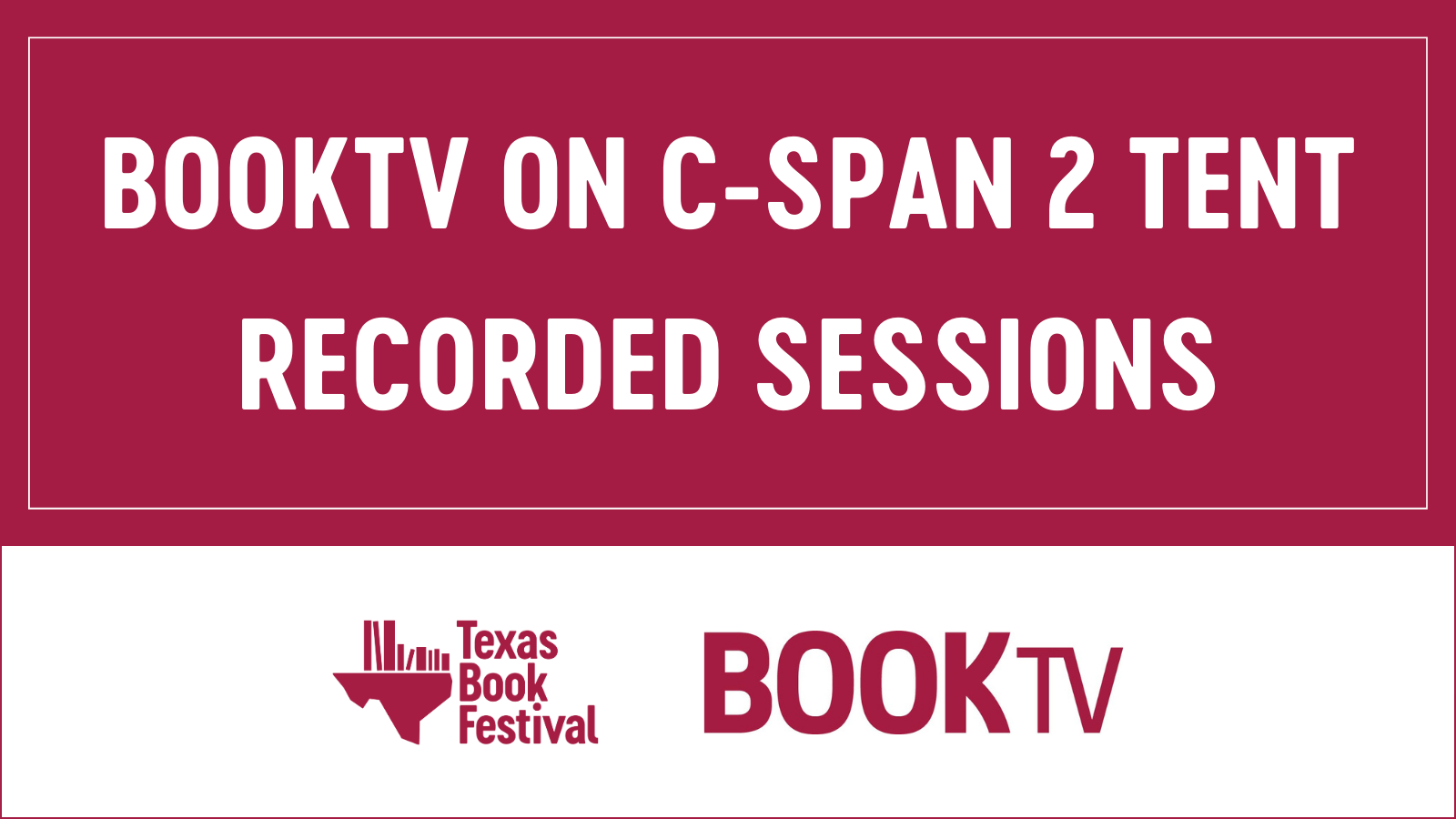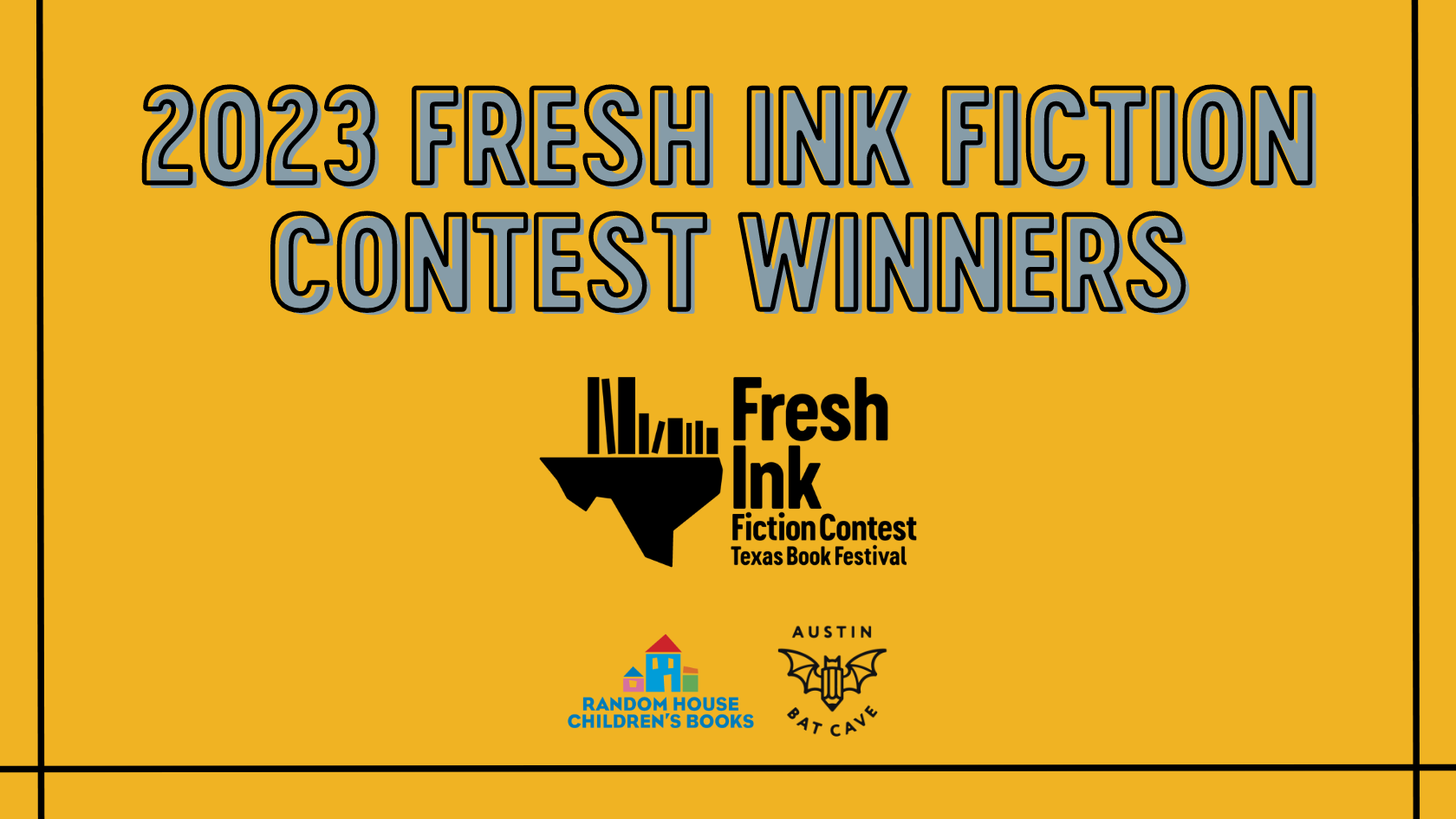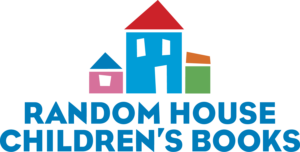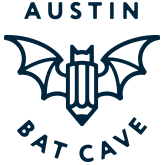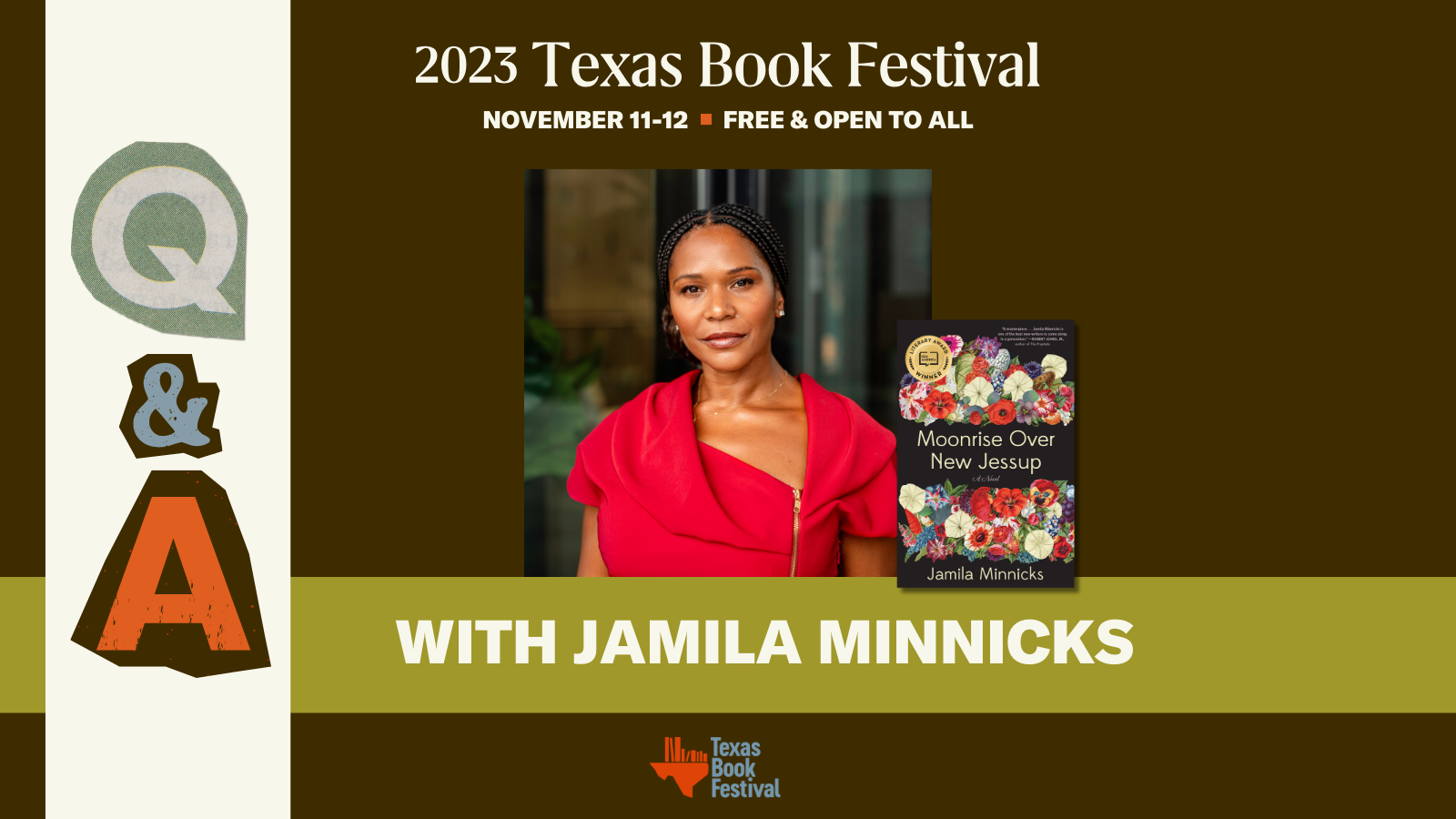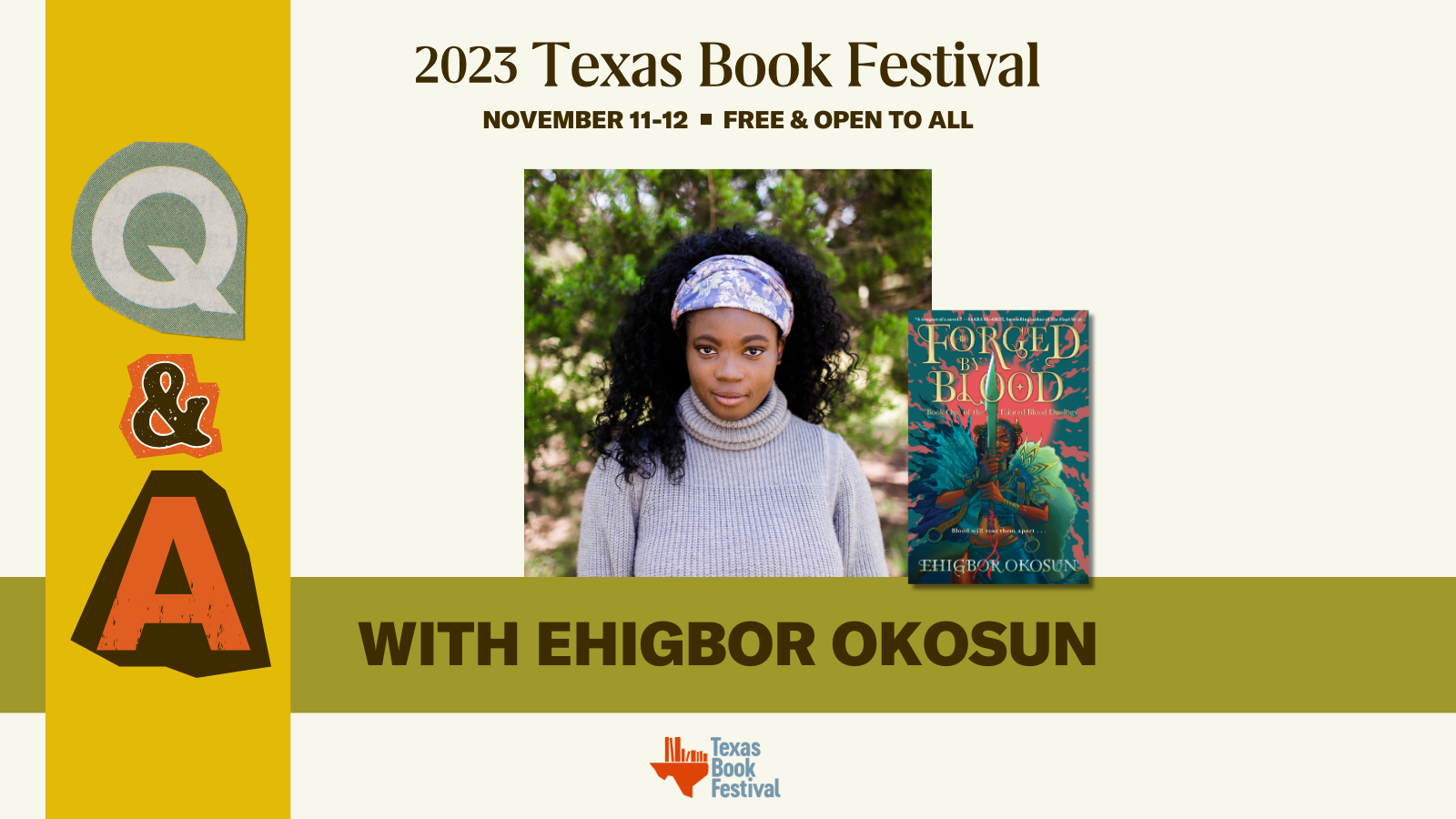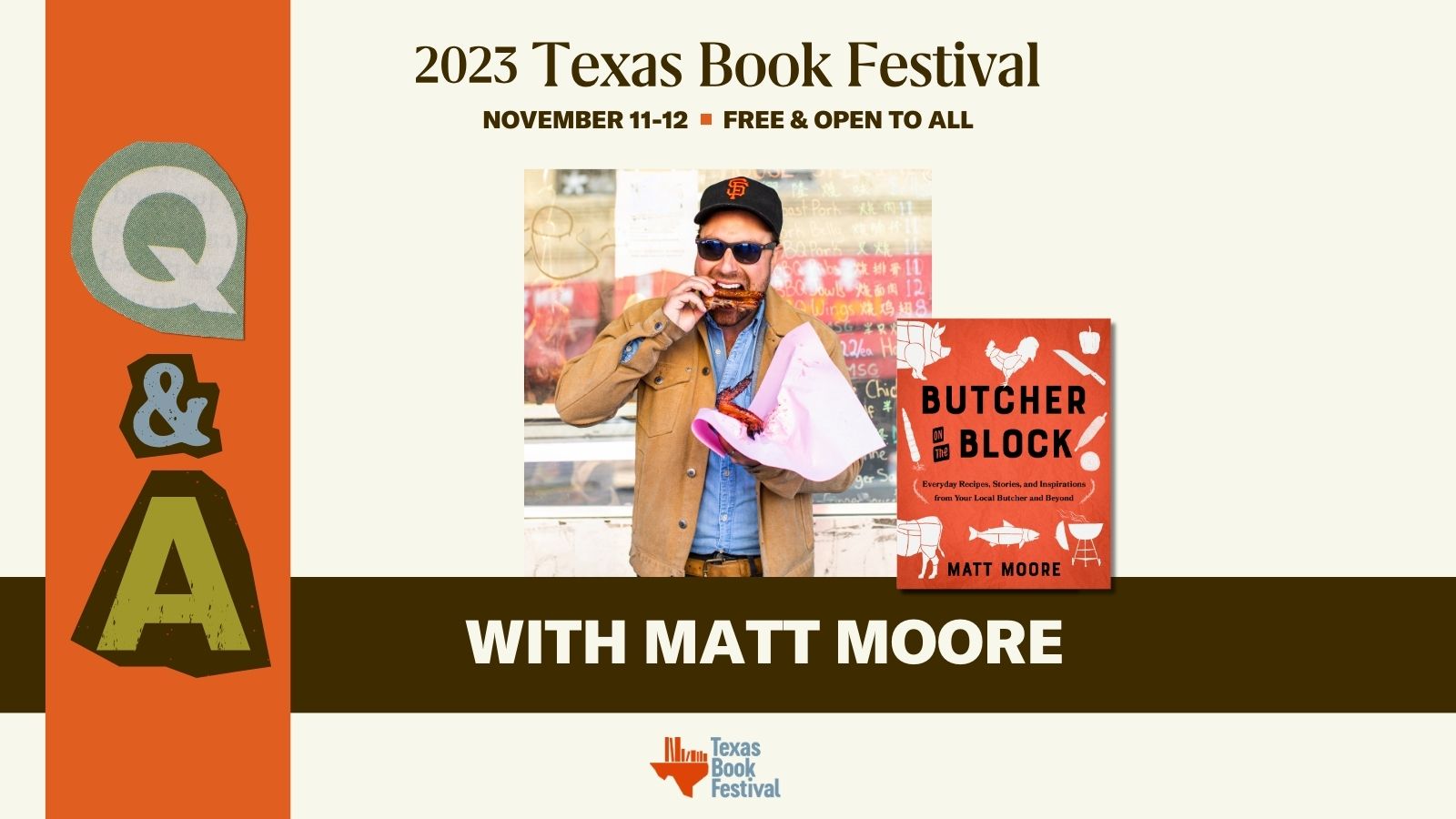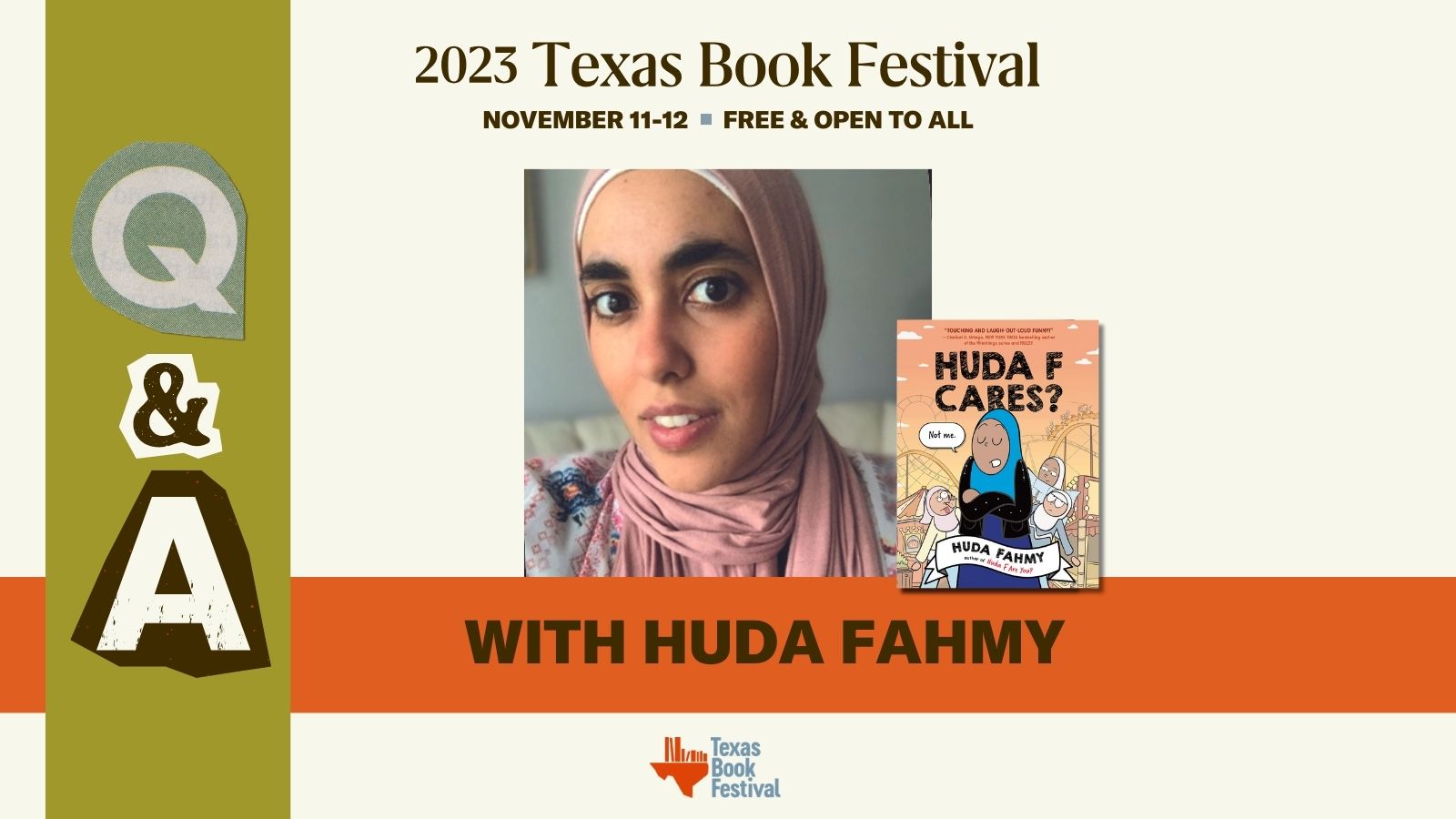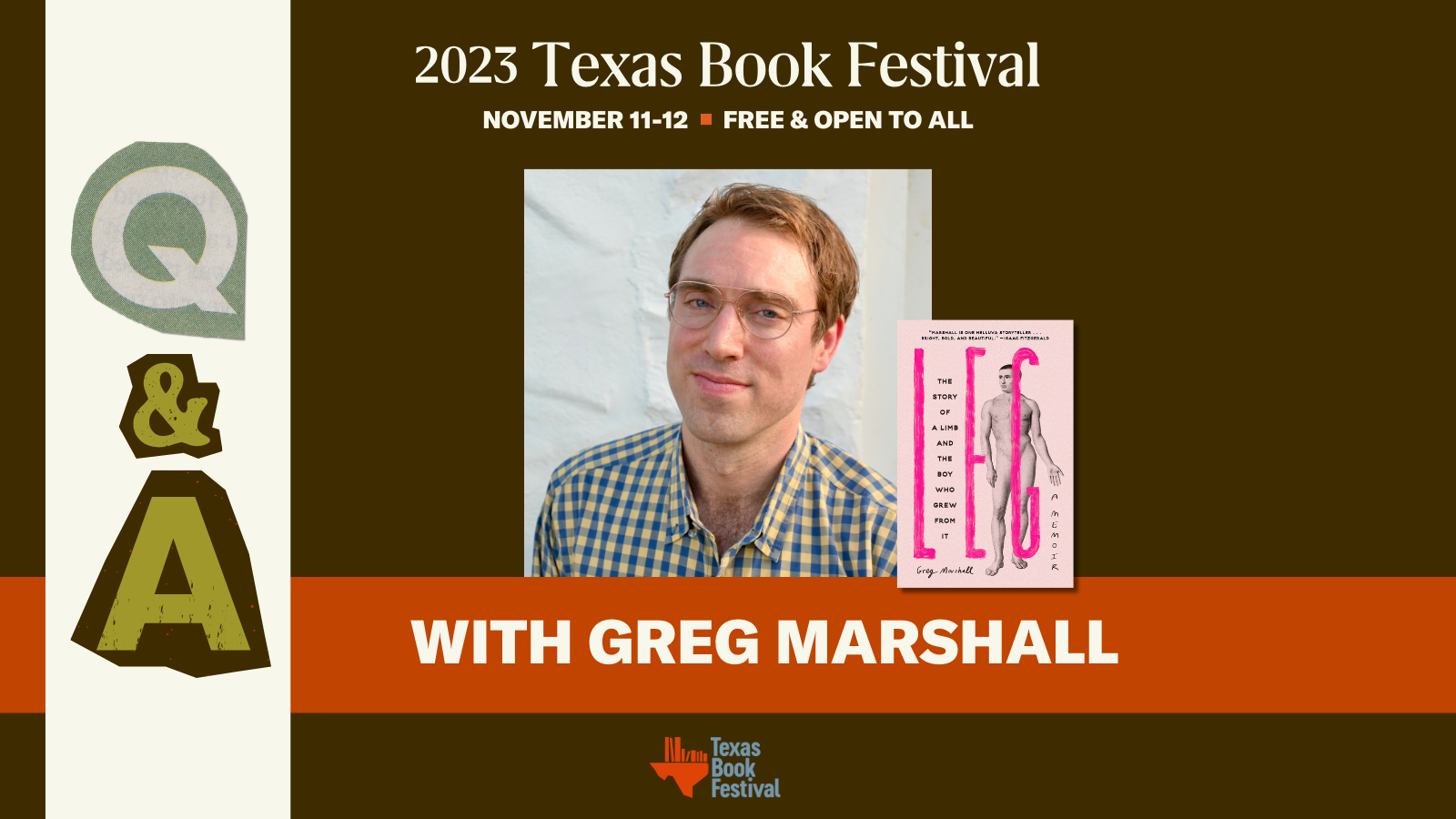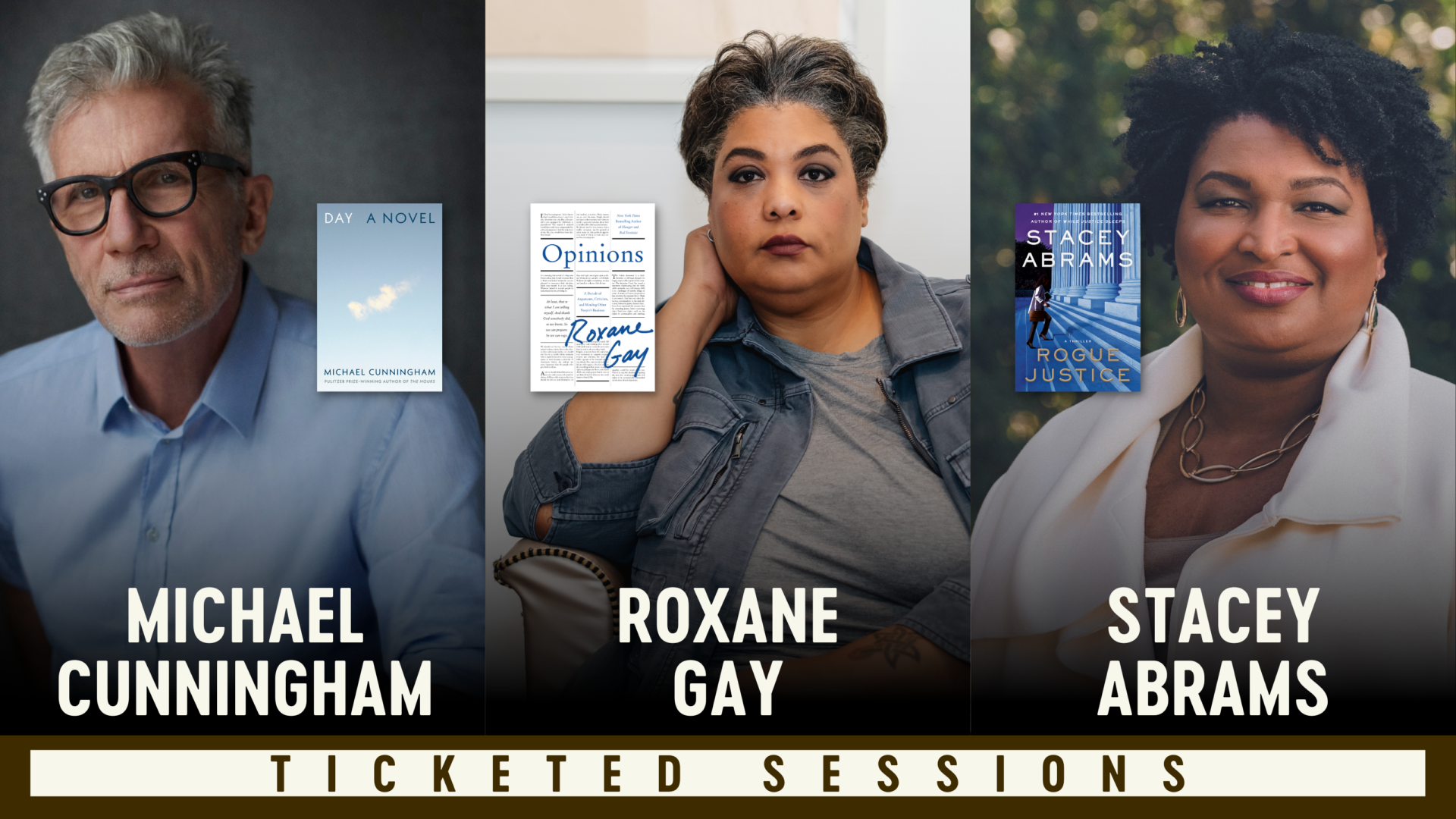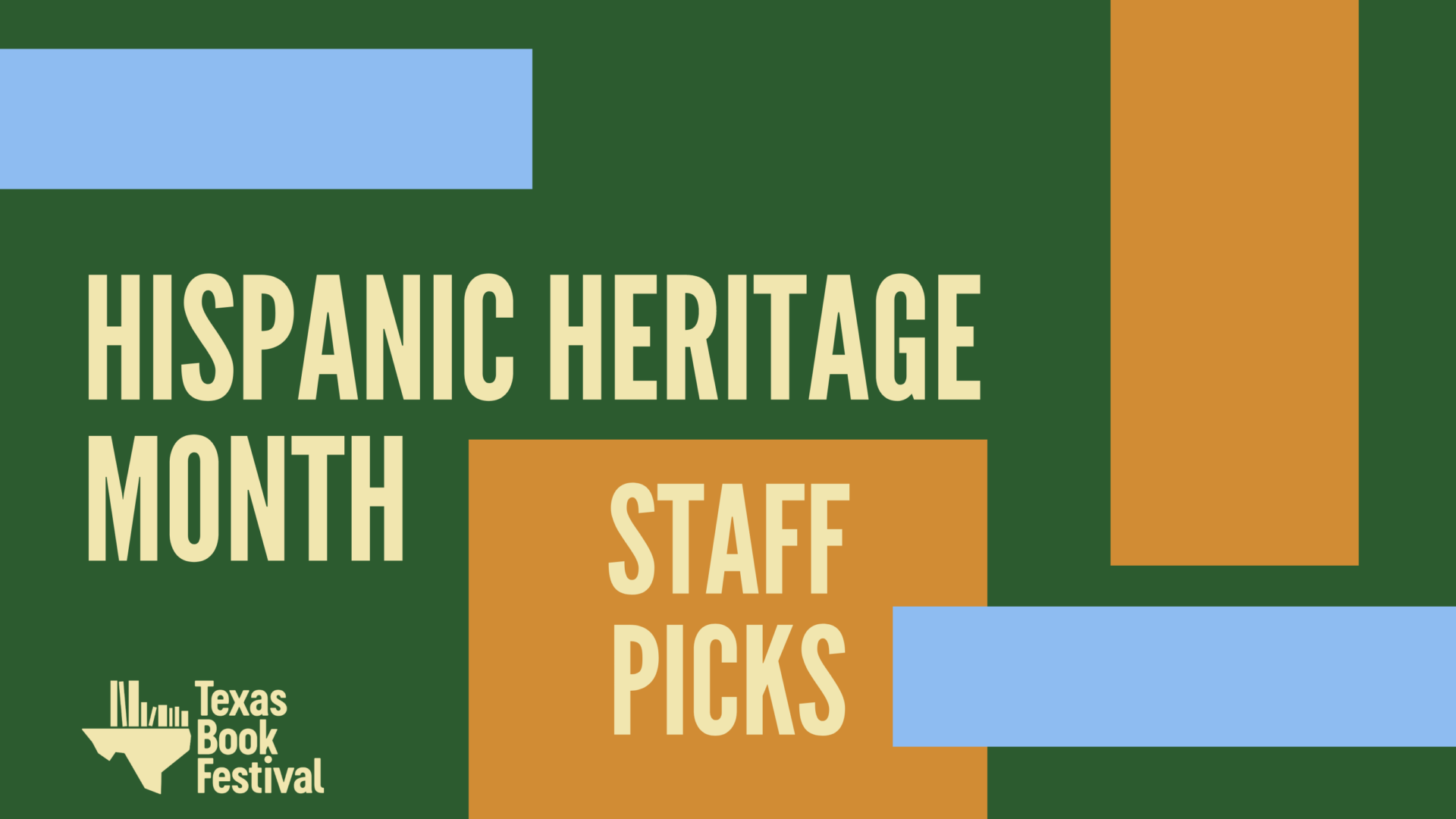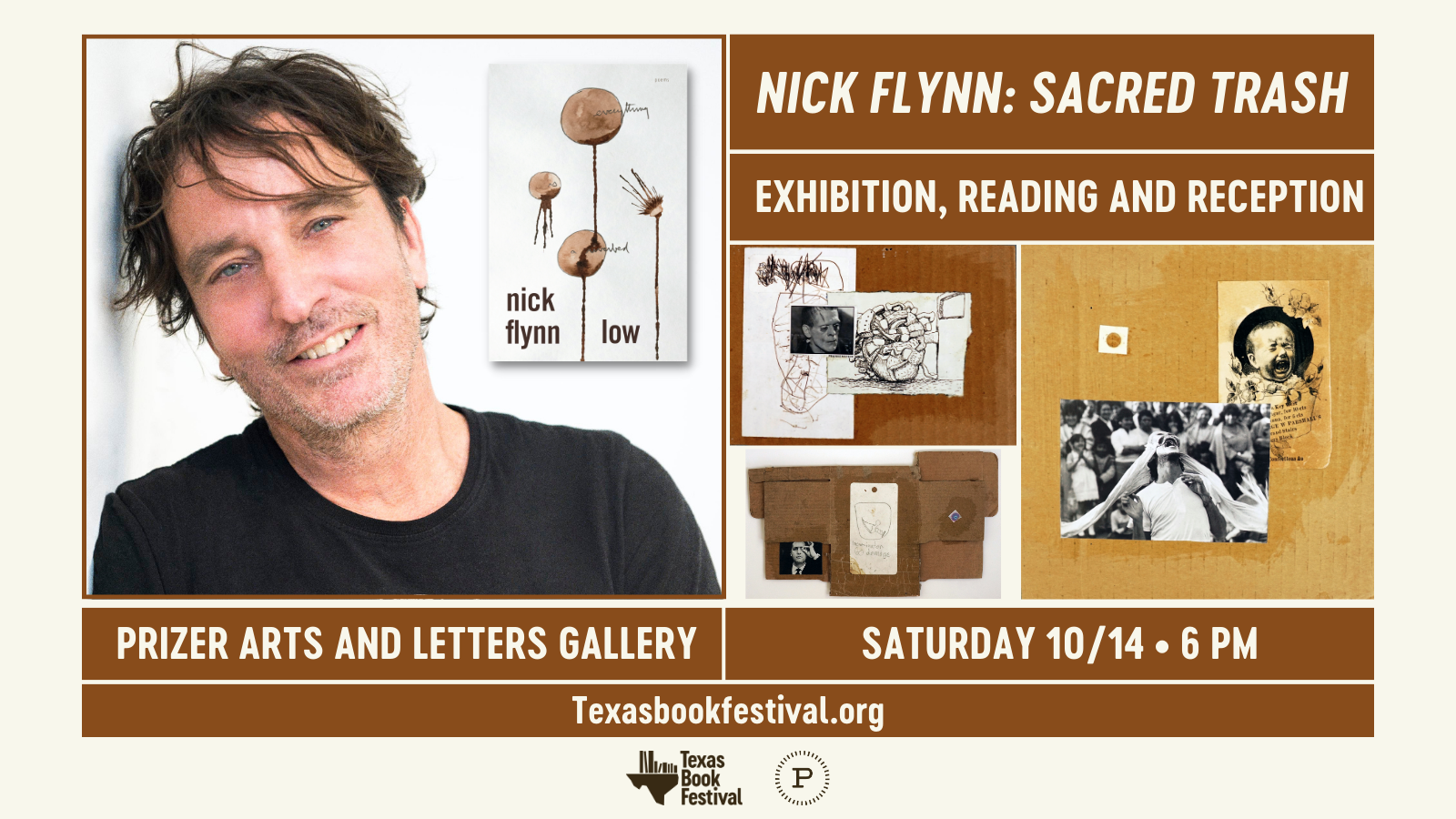We’re proud to share the footage from the BookTV on C-SPAN 2 Tent captured at the 2023 Texas Book Festival along with footage from previous Texas Book Festivals. The session footage is available through our friends and partners at C-SPAN. Click the button below to enjoy more than 250 exciting and compelling literary conversations spanning 23 years.
Author: Jose Rodriguez
2023 Fresh Ink Winners
We’re overjoyed to share the 2023 Fresh Ink Fiction Contest Winners! This year, students across Texas were invited to write stories on the theme “Passwords”. We were impressed with the creative submissions we received. We’re honored to share these young writers’ stories with you. Our 2023 Fresh Ink Fiction Winners will take part in a special panel discussion at the 2023 Texas Book Festival.
Congratulations to the 2023 Fresh Ink Fiction Contest Winners:
6th grade – Passwordtopia by Jake T.
7th grade – The Phoenix Society by Dylan P.
8th grade – The Locked Journal by Nola P.
9th grade – Nuclear Country by Regan M.
10th grade – Sour Candy Purple by Audrey H.
11th grade – Blood Moon Guild by Claudina T.
12th grade – 2296 Renegades by Kaylen E.
Thank you to sponsors Random House Children’s Books and Austin Bat Cave.
Q&A With Jamila Minnicks
We asked 2023 Texas Book Festival Author Jamila Minnicks a few questions about herself and her featured Festival title Moonrise Over New Jessup.
TBF: Why did you write your featured book? (What was your inspiration? Where did the idea start?)
JM: “My mother made sure that we had a complete picture of what it was like for her to grow up in Alabama. De jure segregation ruled the Jim Crow south during her youth, and she lived on the Black side of Demopolis, Alabama. She taught us that Demopolis was a place where my great-great grandfather Preston was one of the founders the home church where my family still worships today; where she vied with the same girl from first through twelfth grade for class valedictorian; where my grandfather, Daddy John, and his four brothers all built “big white houses on the corner” of the same block—each helping the other to construct their homes by hand; where my grandmother, Mama Bea, taught my mother to hold up her head, “high, but not to have her nose in the clouds,” and wrapped my mother in a big hug every day before she went to school. My mother talked about boyfriends and high school dances and fig trees bearing fruit in the yard and shooting a rifle with such precision they called her Annie Oakley. Demopolis was a community where people did for each other, shared nickels and dimes; a place where my great uncle O’Connor once claimed to push his Oldsmobile to “forty-five, forty-five miles per hour.” My family was certainly aware of the ever-present hostilities and dangers they faced. But Demopolis was a place where my family could be self-reliant and serve to better our community.
I grew up reading Moja Means One to M.C. Higgins the Great to classics by Alice Walker, Toni Morrison, Maya Angelou, Sonia Sanchez and Gwendolyn Brooks. When I announced that I wanted to be in the Air Force, my mother took me to meet living Tuskegee Airmen at the Chicago Air and Water Show, and I sat in the red-tailed plane they had on display. When I wanted to become a lawyer, she introduced me to Judge Ann Williams, the first Black woman to serve on the Seventh Circuit Court of Appeals. My mother taught me to find people wherever I was, to build community, and to tell our complete stories.
When George Floyd’s murder circulated the internet, he became, to many, another unfortunate hashtag. I did not know George Floyd, although he could have been my older brother. But he was a part of my community, nonetheless. A man who had lived more life than the story of violence, destruction, and death portrayed and turned him into a body, a symbol, and deprived him of his life as a son, grandson, father, and friend. Even as he lay dying and calling out to his mother. And I started thinking about how the stories of our lives are so full, yet so quickly one-dimensionalized, minimized, then erased.
So I set out to write a short story about a fictional Black family around a holiday table debating what Black social progress really looked like during the time when the modern civil rights movement was taking shape. In that dynamic, Alice’s voice started to get lost ten minutes into writing. She was always a woman married to a man involved in The Movement. But she had her own opinions and motivations and magic, and Moonrise gave me the opportunity to explore her full, meaningful life in a novel. Moonrise also gave me the chance to consider New Jessup with its struggles and triumphs outside the traditional narratives of oppression and degradation. But this is Alice’s story because, without Black women like my mother, my aunts, my grandmother, there is no full accounting of our history.”
Jamila Minnicks’ novel Moonrise Over New Jessup (Algonquin Books, 2023), won the 2021 PEN/Bellwether Prize for Socially Engaged Fiction, is a finalist for the 2023 Center for Fiction First Novel Prize, and was longlisted the 2023 Crook’s Corner Book Prize. Her short stories and essays are published in The Sun, CRAFT, Catapult, Blackbird, The Write Launch, and elsewhere, and her piece, Politics of Distraction, was nominated for the Pushcart Prize. Jamila’s work has been supported by the Sewanee Writers’ Conference and the Virginia Center for the Creative Arts.
Jamila is a graduate of the University of Michigan, the Howard University School of Law, and the Georgetown University Law Center. She lives in Washington, DC. You can see Minnicks at the 2023 Texas Book Festival this November 11–12!
Q&A With Ehigbor Okosun
We asked 2023 Texas Book Festival Author Ehigbor Okosun a few questions about herself and her featured Festival title Forged by Blood.
TBF: Why did you write your featured book? (What was your inspiration? Where did the idea start?)
EO: “All my life, I’ve loved reading. I didn’t have many toys growing up, but I was never in want for books–at the library, at school, the one or two my parents gifted me every year–books held special and precious places in my life. But so often, when I opened those pages, I saw characters who shared some of my personal characteristics or originated from one of my cultures were often caricatures at best and nonexistent at worst. So many fantastical and contemporary stories gave me hope, and helped me imagine how I could have a future beyond the difficulties of the post-colonial existence I’d been born into. But just as much as these stories lifted me up, they also often inflicted pain by refusing to acknowledge that people like me could exist within their worlds as whole, realized, complicated characters. So, when I set out to write Forged By Blood, I remembered that feeling. I wanted people to pick up this book and see themselves in ways they might not have had the opportunity to before–to be complicated, multi-faceted people dealing with questions of power and empire and whether peace was possible in a world governed by chaos and hatred. I also wanted to pay homage to the wealth of mythology stories I’d grown up with and to honour their legacy in my life as something to be proud of rather than shy away from.”
TBF: What is the last book you read, loved, and can’t stop recommending? What did you love about it?
EO: “I’ll cheat and talk about two books. The first last book I read was a re-read! Shirlene Obuobi’s On Rotation is a smart, lovely and heartfelt women’s fiction novel about a young medical resident navigating friendship, love, and her identity as a first generation Ghanian American. Loved it. The second last book was Moniquill Blackgoose’s To Shape A Dragon’s Breath–a fantastic novel about an Indigenous young woman who is working to raise a dragon amidst the people who colonized her people’s lands. I’ll cheat again and add S.L. Huang’s The Water Outlaws because it is a gender-bent love story to one of the four great Chinese novels, The Water Margin. S.L. gives you two varied female main characters who grapple with questions of morality, power matrices, and privileges. She also gives you two villains who inspire fear and excitement. Have I tempted you enough?”
TBF: What’s the first book you remember reading and who gave it to you? What inspired your love of reading / writing?
EO: “The first book I ever read was A Little Princess by Frances Hodgson Burnett. My dad gave it to me when I was 2. The play that got me writing though was Shakespeare’s The Tempest. I read that at 7 and fell in love with writing and the idea that I could write.”
Ehigbor Okosun, or just Ehi, is an Austin-based author who writes speculative fiction, mystery thrillers, and contemporary novels for adult and YA audiences. Raised across four continents, she hopes to do justice to the myths and traditions she grew up steeped in, and honor her large, multiracial, and multiethnic family. She is a graduate of the University of Texas with degrees in Plan II Honors, Neurolinguistics, and English, as well as Chemistry and Pre-Medical studies, and is a Cynthia Leitich Smith Mentorship Award finalist. When she’s not reading, you can catch her bullet journalling, gaming, baking, and spending time with her loved ones. Forged By Blood, out on 8.8.23, is her debut novel. You can see Okosun at the 2023 Texas Book Festival this November 11–12!
Q&A With Matt Moore
We asked 2023 Texas Book Festival Author Matt Moore a few questions about himself and his featured Festival title Butcher on the Block: Everyday Recipes, Stories, and Inspirations from Your Local Butcher and Beyond.
TBF: Why did you write your featured book? (What was your inspiration? Where did the idea start?)
MM: As my last two books focused on BBQ and grilling, I wanted to find a way to combine those two subjects, without being limited to just one cooking method. With both time and thought, as it always takes, the idea started with my beginning, to my own family roots in the art of butchering. As the first line of the book reads, this is not a book about butchering. Rather, it is about the butcher. I invite you to befriend the folks across the counter and share the over 125 delicious recipes in the book with your own friends and families.
My grandfather and uncle, both first generation Lebanese immigrants, were WWII veterans, who then served after the war at our family grocery store and butcher shop in Valdosta, GA. Writing this book provided such a personally meaningful experience to go back in time and revisit so many of those memories, including a posthumous feature on my grandfather including my favorite recipes.
Just about everybody has a butcher in their family tree—my grandfather’s story was a portal to understanding the rich history of butchers in my local community, and can be to yours, too. A trusted butcher is vital to daily life—just like a doctor or mechanic. Striking up a friendship provides not only a connection to the community, but some delicious food to boot!”
TBF: Is this book just about meat?
MM: “No, not at all. These days, the idea of butchering has expanded its boundaries. So, in addition to plenty of meat and game, I also felt it important to shine a light on seafood and vegetables too. In fact, we feature my friend Cara Mangini, who was the first ‘vegetable butcher’ in New York’s Eataly. So, whether barbecued, grilled, raw, roasted, or fried, this book is a catch-all for any cook looking for an adventure in the kitchen.”
TBF: Many of your recipes have a southern flair with international influence – talk about how these traditions combined and created the flavor profiles? Any favorite recipes that showcase this fusion in particular?
MM: “I’m proud to have lived my entire life in the south, and I believe part of what makes up a Southern Gentleman is someone who is not only intellectually curious, but also worldly in their approach to generosity and hospitality. I’ve been fortunate to enjoy a diverse background of family, friends, and travels that help me shape the rich culture of the south—something I try to embody through sharing the mantra that there are no strangers when you are cooking and sharing food. At my house, it’s always a broad range of foods from fried chicken to tabbouleh that make up the family table.”
TBF: What kinds of advice do you most commonly give—both to home chefs just starting out, and to those with more experience?
MM: “In addition to writing books, I freelance for a slew of publications including The Art of Manliness, Life & Thyme, Southern Living, and more. I enjoy teaching others the joy and lifelong fulfillment that cooking and sharing food can bring. That said, I always preach that a meal is only as good as its ingredients—this is especially true in the world of butchering. With time and temperature, you can also get great results. A pork shoulder needs a low and slow temp, and plenty of time to yield those delicious, fall off the bone results. Alternatively, a steak cooked hot and fast allows the Maillard reaction to take over, defining that brown food is good food saying that chefs live by. At the end of the day, I emphasize simplicity, quality, and practice—nail all three and you are in for some good ‘eatin!”
TBF: What do you hope readers will take away from the book?
MM: “Think of this as a travel show, but in book form. I’m inviting you to sit right seat in the air, on the road, or get behind the counter to explore unique cultures and personalities. This is just as much a Saturday morning, cup of coffee read as it is a weeknight friendly reference for a quick meal at home. By approaching this book through the lens of the butcher, we uncover different cuts, methods, and techniques that can improve and expand your culinary repertoire. All-in-all, if you want to own just one cookbook—this is it! Butcher on the Block features an array of ingredients to satisfy any diet, while also promoting nearly every cooking method to either reinforce or expand your culinary horizon.”
Matt Moore is an entrepreneur, cook, musician, host, pilot, and the quintessential Southern gentleman living in Nashville, TN. He is the author of Serial Griller, The South’s Best Butts, A Southern Gentleman’s Kitchen, and Butcher on the Block. His food writing has garnered critical acclaim from publications including the Wall Street Journal, Chicago Tribune, and New York Times. His Southern charm has landed him on the TODAY show, Fox & Friends, Tamron Hall, CBS, VH1, and WGN. You can see Moore at the 2023 Texas Book Festival this November 11–12!
Q&A With Huda Fahmy
We asked 2023 Texas Book Festival Author Huda Fahmy a few questions about herself and her featured Festival title Huda F Cares.
TBF: Why did you write your featured book? (What was your inspiration? Where did the idea start?)
HF: “I like writing stories with characters who are trying to discover who they are and are struggling to find a way to be true to themselves but also fit in. Huda F Cares was inspired by the hundreds of road trips my family and I took over the years. So many of my core memories happened on those trips. I would even go so far to say that I wouldn’t be the person I am today had it not been for those trips. There’s a saying in my faith that there are three ways to know someone’s true character: lend or borrow money from them, live with them, or travel with them. And every time I went on a trip with my family I would discover something new about myself in the way that I reacted to certain situations. I would discover what I liked about myself and what I didn’t like about myself but I would also discover that I was in control of who I wanted to be. And that’s what I wanted to explore in Huda F Cares.”
TBF: What is the last book you read, loved, and can’t stop recommending? What did you love about it?
HF: “The last book I read that I can’t help but recommend to everybody I need is called As Long As the Lemon Trees Grow by Zoulfa Katouh. It is such a beautifully written story about love and survival with a heartbreaking twist.”
TBF: What’s the first book you remember reading and who gave it to you? What inspired your love of reading/writing?
HF: “The first book I remember reading all on my own was James and the Giant Peach. I can’t really narrow down what inspired my love for reading but I can tell you that I was very much bullied as a kid and excluded for being different. But the characters in books didn’t care who I was and I could escape into whatever world I wanted and it felt like I belonged. Also, English wasn’t my first language and I desperately wanted to fit in so I read everything I could at a young age with the hope that I would pick up colloquialisms and figure out how to be like the other kids. Instead, I figured out how to love and accept myself even when others couldn’t or wouldn’t. It was a win-win.”
Huda Fahmy grew up in Dearborn, Michigan, and has loved comics since she was a kid. She attended the University of Michigan where she majored in English. She taught English to middle and high schoolers for eight years before she started writing about her experiences as a visibly Muslim woman in America and was encouraged by her older sister to turn these stories into comics. Huda, her husband Gehad, and their children reside in Houston, Texas. You can see Fahmy at the 2023 Texas Book Festival this November 11–12!
Q&A With Greg Marshall
We asked 2023 Texas Book Festival Author Greg Marshall a few questions about himself and his featured Festival title Leg: The Story of a Limb and the Boy Who Grew From It.
TBF: Why did you write your featured book? (What was your inspiration? Where did the idea start?)
GM: “I graduated from UT’s Michener Center for Writers in 2013 with a degree in fiction. I’d had a stellar time and worked with teachers and fellows I adore to this day, but I was feeling burned out. I needed a little elbow room, a way to make my writing feel like mine again. After three years of reading and studying with literary heavyweights, I wanted to be silly and have fun. I mean, it was summertime in Austin! How do you not want that?
For me, coming-of-age stories have always had an intoxicating, sun-drenched energy. There’s nostalgia in these tales of woe, sure, but there’s also sexual awakening and a hint of foreboding and body hair. It’s a time when you swim more than shower, when sunscreen is your main deodorant, when you hang out with your best friend for three days straight and only separate because of sleep deprivation. And yet, in this time-honored genre, it seemed to me that there weren’t all that many gay kids, and there were almost no disabled kids and I was both. I was missing from my favorite genre! This was an extremely exciting moment because I knew, in my own small way, I could be my own genre.
I’d had a bunch of colorful experiences as a kid that I wanted to capture on the page, so that’s where I started. I wrote about being on Accutane for my zits and about using my mom’s Brookstone back massage to discover my body, about taking a middle-school trip to France with my dad where I worried the entire time that he’d out me, and about meeting Margaret Pellegrini, the actor who played a Sleepyhead munchkin in the 1939 Wizard of Oz film.
I walk with a limp because of cerebral palsy and I found that the more I wrote about my early years, the more I kept returning to my leg. And once I had my leg, the one I recognized from my life, the rest of me started showing up on the page, too. My stories grew up with me until I wasn’t a kid in them anymore. I was a teenager and then a twenty- and thirty something working as a journalist and taking care of my terminally ill parents and falling for the wrong men and I was still figuring life out, still coming of age, still in a swimsuit any chance I got.”
TBF: What is the last book you read, loved, and can’t stop recommending? What did you love about it?
GM: “Parini Shroff’s The Bandit Queens is a comedic tour-de-force that took me to a part of the world I’d never visited, rural India, and delivered an up-all-night, laugh-out-loud, good old-fashioned page-turner. I give the book five murderous widows out of five.”
TBF: What’s the first book you remember reading and who gave it to you? What inspired your love of reading / writing?
GM: “The Wartville Wizard by Don Madden is a picture book about an anti-litter crusader who develops the ability to make trash stick to whomever tossed it in the first place. I could tell you that I was a precocious little environmentalist but the truth is the book had me at wizard. I was a sucker for any Merlin-esque daddy with magical powers. I even loved Merlin’s vacation look at the end of The Sword in the Stone. Once I was a little older, third and fourth grade, I gave up older men for superheroes and primarily read X-Men and Superman comics. If I had any ability to draw, I’d probably have tried to do that. The verdict from an adult drawing class at Laguna Gloria pre-pandemic was merciless and conclusive. I’m sticking with words.”
Greg Marshall was raised in Salt Lake City, Utah. A National Endowment for the Arts Fellow in Prose, Marshall is a graduate of the Michener Center for Writers. His work has appeared in The Best American Essays and has been supported by MacDowell and the Corporation of Yaddo. Leg is his first book. You can see Marshall at the 2023 Texas Book Festival this November 11–12!
2023 Ticketed Sessions Now On Sale
The Texas Book Festival is delighted to share the 2023 Ticketed Sessions for literary superstars Michael Cunningham, Roxane Gay, and Stacey Abrams. Each session ticket includes a copy of the author’s featured Festival book, session admission, and access to the author’s signing line. Proceeds from book ticket sales support the annual Festival and our year-round programs.
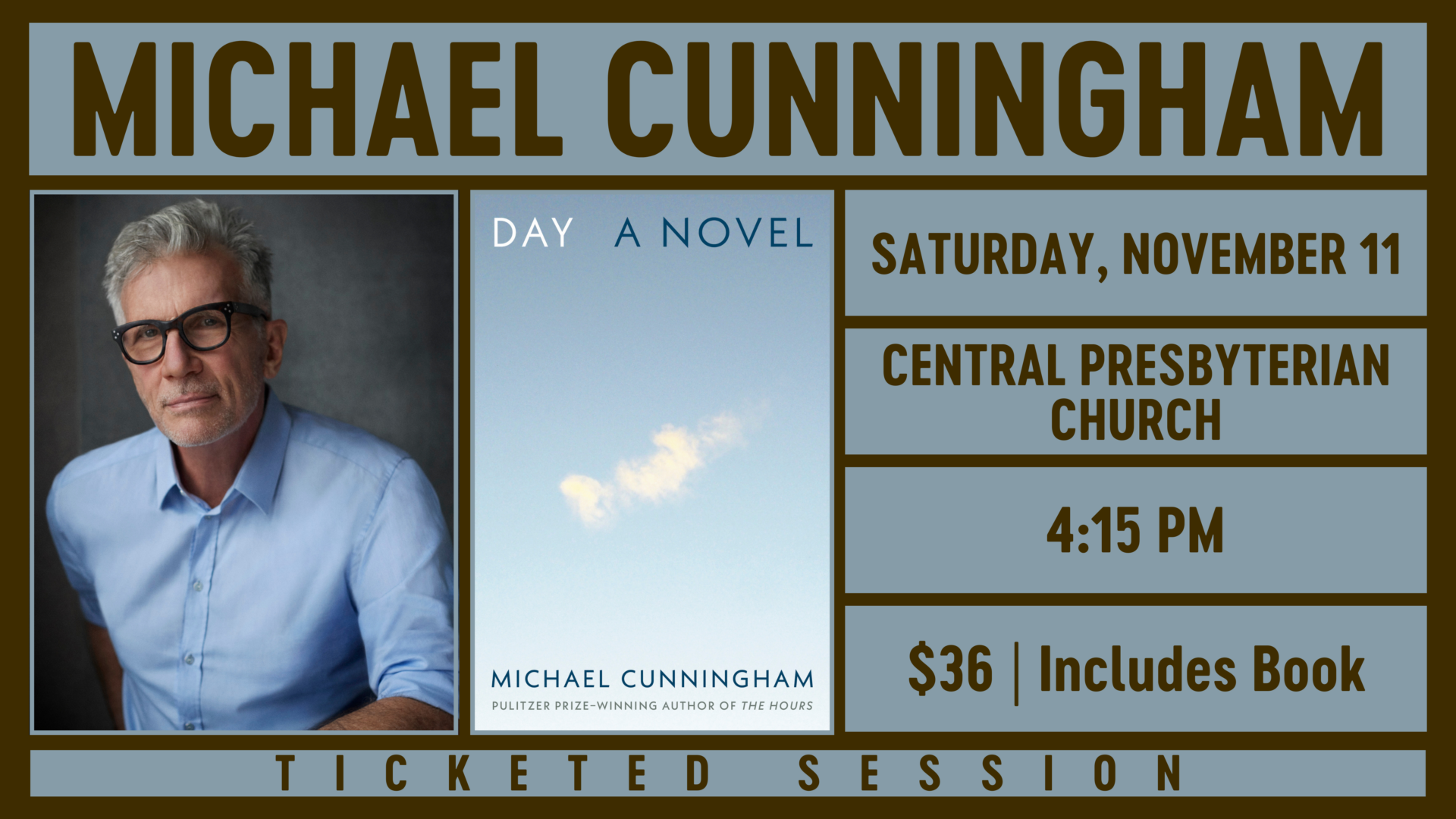
MICHAEL CUNNINGHAM: Saturday, November 11 • Central Presbyterian Church • 4:15 p.m.
Michael Cunningham’s novels include A Home at the End of the World, Flesh and Blood, Specimen Days, By Nightfall, and The Snow Queen, as well as the collection A Wild Swan and Other Tales and the nonfiction book Land’s End: A Walk in Provincetown. He is the recipient of a National Endowment for the Arts grant, a Whiting Award, and a Guggenheim Fellowship, and his work has appeared in The New Yorker and The Best American Short Stories. The Hours was a New York Times bestseller and the winner of both the PEN/Faulkner Award and the Pulitzer Prize. Raised in Los Angeles, Cunningham lives in New York City and is a professor in the practice of creative writing at Yale University.
Ticket: $36 + fees | Includes one copy of Day, session admission, and access to the book signing line.
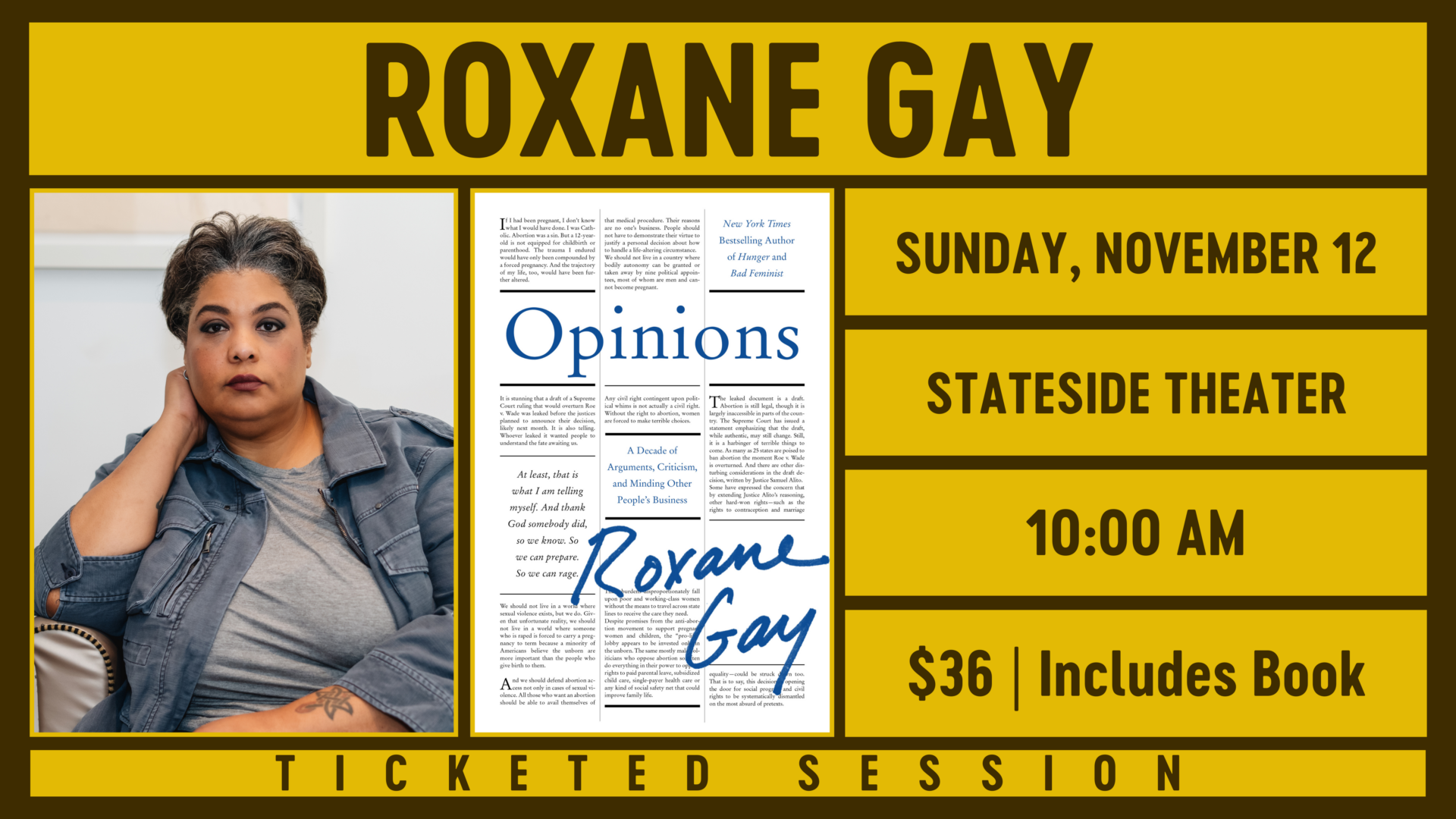
ROXANE GAY: Sunday, November 12 • Stateside Theater • 10:00 a.m.
Roxane Gay’s writing appears in Best American Mystery Stories 2014, Best American Short Stories 2012, Best Sex Writing 2012, Harper’s Bazaar, A Public Space, McSweeney’s, Tin House, Oxford American, American Short Fiction, Virginia Quarterly Review, and many others. She is a contributing opinion writer for the New York Times. She is the author of the books Ayiti, An Untamed State, the New York Times bestselling Bad Feminist, the nationally bestselling Difficult Women, and the New York Times bestselling Hunger: A Memoir of My Body. She is also the author of World of Wakanda for Marvel.
Ticket: $36 + fees | Includes one copy of Opinions, session admission, and access to the book signing line.
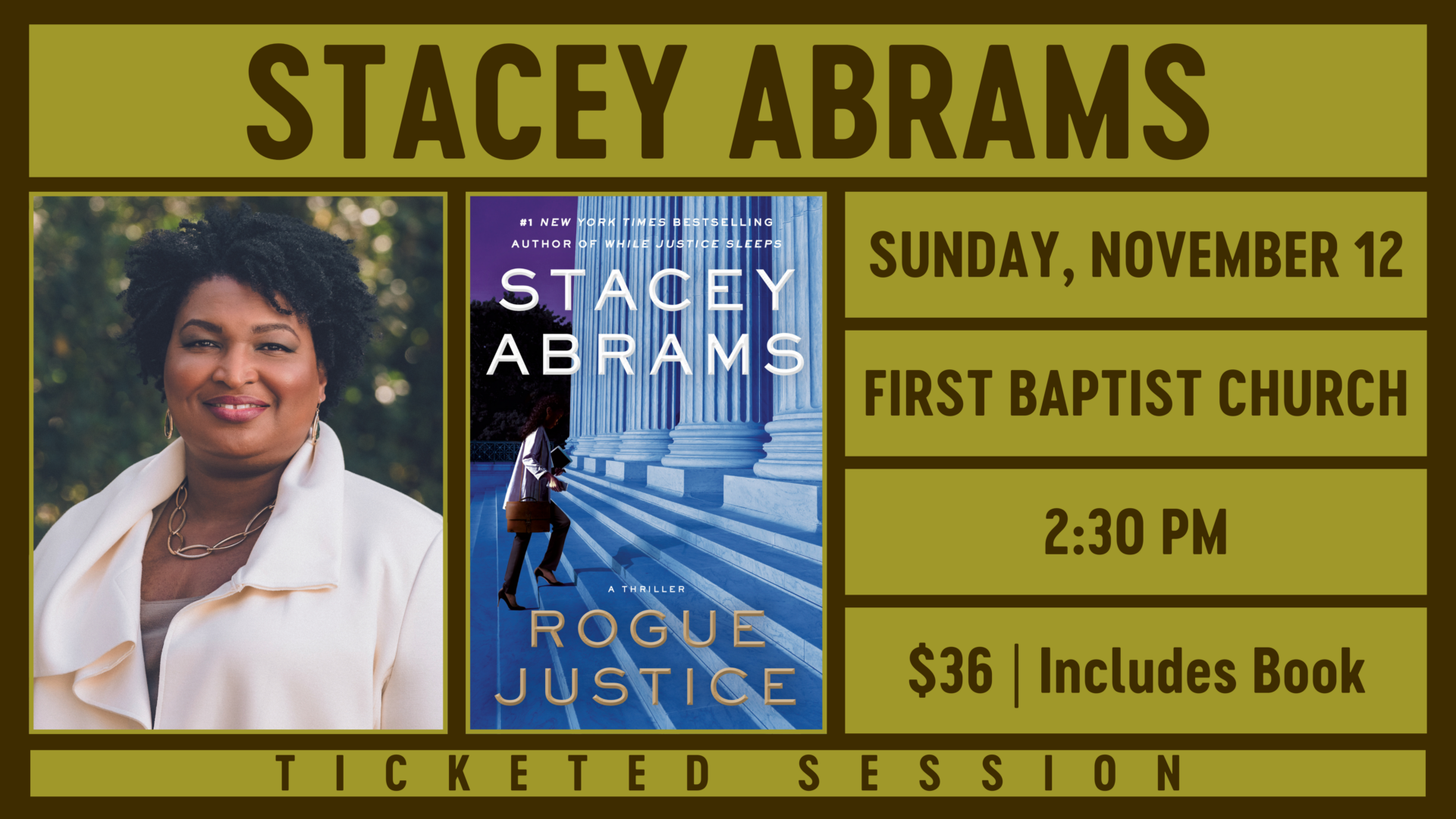
STACEY ABRAMS: Sunday, November 12 • First Baptist Church • 2:30 p.m.
Stacey Abrams is an entrepreneur, political leader, and New York Times bestselling author of While Justice Sleeps. She served as Minority Leader in the Georgia House of Representatives, and she was the first Black woman to become a gubernatorial nominee for a major party in United States history. Abrams has launched multiple nonprofit organizations devoted to democracy protection, voting rights, and effective public policy. She has also co-founded successful companies, including a financial services firm, an energy and infrastructure consulting firm, and the media company, Sage Works Productions, Inc.
Ticket: $36 + fees | Includes one copy of Rogue Justice, session admission, and access to the book signing line.
Hispanic Heritage Month Staff Picks
Texas Book Festival celebrates and reveres Hispanic and Latine stories and experiences. Through reading about the lived cultural experiences of others we expand our knowledge of those experiences and of the world. Check out some TBF staff picks below!
Some of these staff picks are 2023 Texas Book Festival featured titles. Look for hyperlinks to purchase these books from the official Texas Book Festival online bookstore. Proceeds support the Festival!

“Varela is doing the good work. Where else can you learn about the nuanced consequences of racism on public health among people of color and at the same time get an inside look at what it feels like to be a queer person in 2023? The People Who Report More Stress demonstrates in a smart and entertaining fashion that neither Latinidad nor queerness are monoliths to be easily understood. No one aspect of an intersectional, marginalized identity can be so simply untangled from the other. They inform one another in layered tones and shades. You’ll want to dive right into this one.” – Jose Rodriguez, Communications and PR Coordinator
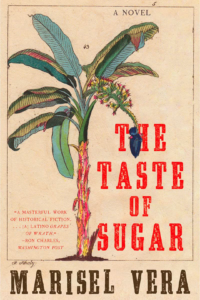
“Marisel Vera’s sweeping novel introduces readers to the story of Valentina Sanchez and Vicente Vega from the dwindling coffee farm in the mountains of Utuado fortunes of a turn-of-the-century coffee grower to the burgeoning sugar plantations of Hawaii in pursuit of a better life. The history of Puerto Rico and its relationship with the United States is often overlooked and this riveting story offers context for the tension and challenges that continue to this day.” – Susannah Auby, Development Director

“Brown Girls felt like a tender love letter to Brown girls – with a focus on exploring intersecting identities, Brown Girls used a humorous and candid approach to making sense of the contradictory components and worlds of growing up as a multi-cultural Brown woman. A warm hug of comfort and hope that is engaging (and funny!) throughout.” – Becky Gomez, Digital Design & Content Coordinator

“I can’t stop thinking about the poem “Poetry Is Not Therapy” and the first line that follows “but that doesn’t mean I didn’t try it.” In this stunning collection, José Olivarez writes of love, intimacy, heartbreak, and loss. He reflects on masculinity, systems of power, and capitalism. And while Olivarez’s insights are brilliant, I also found them accessible and wildly relatable. These poems may not be therapy for the poet or its readers, but they provide a lot of good for both the head and the heart.” – Michelle Hernandez, School and Community Programs Manager

“A finalist for both the National Book Award as well as the Pulitzer Prize, this unique memoir reads like a magical realism novel. The Man Who Could Move Clouds explores the author’s Colombian upbringing in a family of powerful curanderos – healers who have otherworldly powers to see the future, heal the sick, and commune with the dead. A must read for those fascinated by spirituality and/or culture!” – Hannah Gabel, Literary Director

“With this recommendation I’m looking back at a novel that inspired my passion for historical fiction and the inventive ways that fiction can be built around a historical framework. This absorbing novel illuminates the lives of four sisters whose lives are profoundly impacted by political turmoil and oppression in the Dominican Republic under General Rafael Leónidas Trujillo’s dictatorship. This timeless and memorable story inspired me to try my own hand at writing a historical novel.” – Dalia Azim, Interim Executive Director
Exhibition, Reading and Reception for Nick Flynn: Sacred Trash
Texas Book Festival is proud to partner with Prizer Arts and Letters to celebrate the opening-night of Nick Flynn’s new exhibition of collage work. That evening, we will host a reading from Nick’s new book, and a reception will follow. Flynn will also be a featured author at the 2023 Texas Book Festival. The exhibition, titled Nick Flynn: Sacred Trash, contains gathered ephemera collaged by Flynn over many years. During the pandemic, Flynn started writing a poem a day in response to his collages. These poems are now part of his forthcoming book, Low (Graywolf), from which Flynn will read at his opening and which will also be part of our Festival lineup.
Join us for this event at Prizer Arts and Letters on Saturday, October 14 from 6–9 p.m. (2023 E. Cesar Chavez Street). A selection of Flynn’s book will be available for sale at the event.
Artist Statement
“Sacred Trash is the title of a book by Adina Hoffman and Peter Cole. Its subtitle is The Lost and Found World of the Cairo Geniza. A geniza is a synagogue’s repository for worn-out texts. These repositories were packed not with gold but with paper—contracts, letters, lists of workers, money orders, prescriptions, poems, needed supplies. The belief was that any word or image written out could be (or was) the word of God, and therefore must be saved.
Throughout my life I’ve gathered ephemera (from sidewalks, brochures, magazines, children’s drawing). I cannot say why I do this, but I’ve always had a hard time ignoring an interesting scrap of paper, especially one with some scrawl on it. From this gathering I developed a collage practice, which continues to this day. Inspirations are Kurt Schwitters, Robert Rauschenberg, Hannah Höch—I am drawn to this work, it seems more intuitive, somehow closer to a collective unconscious (if such a thing exists).
In late 2020, at the tail-end of our first long pandemic year, I began a practice of writing a poem a day in response to each of the collages. It was daily meditative practice, which carried over into now. Those poems are now gathered together in my latest book, Low (Graywolf, 2023). To coincide with the release of Low, I’m thrilled to have this chance to present these collages at Prizer Arts and Letters, in collaboration with The Texas Book Festival.”
About Nick Flynn
Nick Flynn is a writer, poet and memoirist. Selected books include Some Ether (2000), Blind Huber (2002), The Captain Asks for a Show of Hands (2011), My Feelings (2015), Another Bullshit Night in Suck City (2004), Being Flynn (2005), The Ticking is the Bomb (2010), and The Reenactments (2013). Many of Flynn’s books are structured by using a collage technique, and he carries this format into his visual work.

